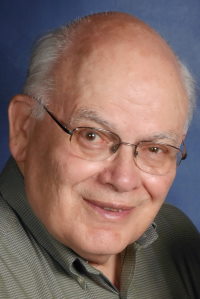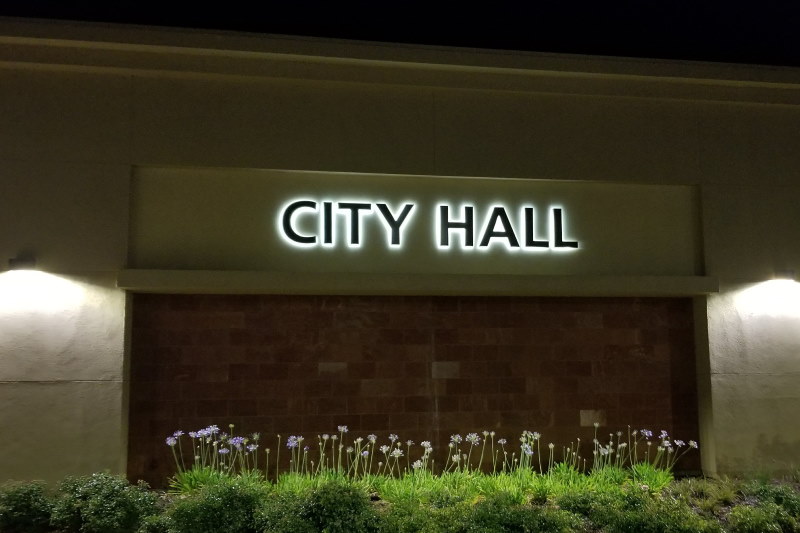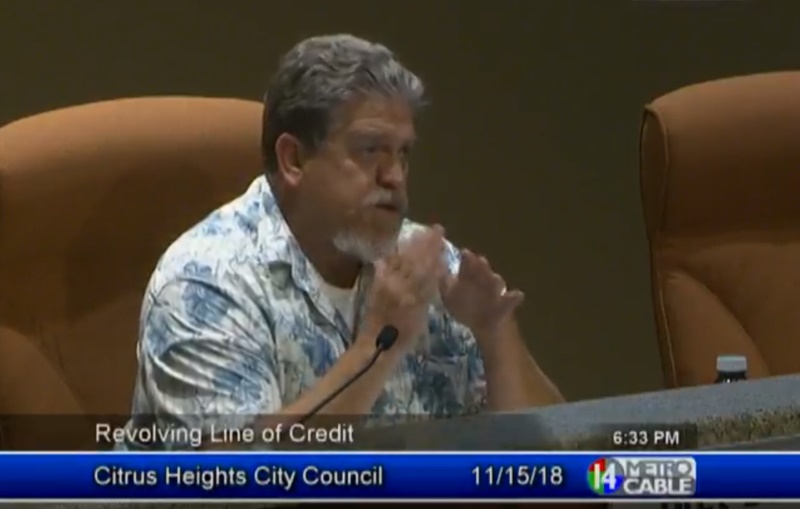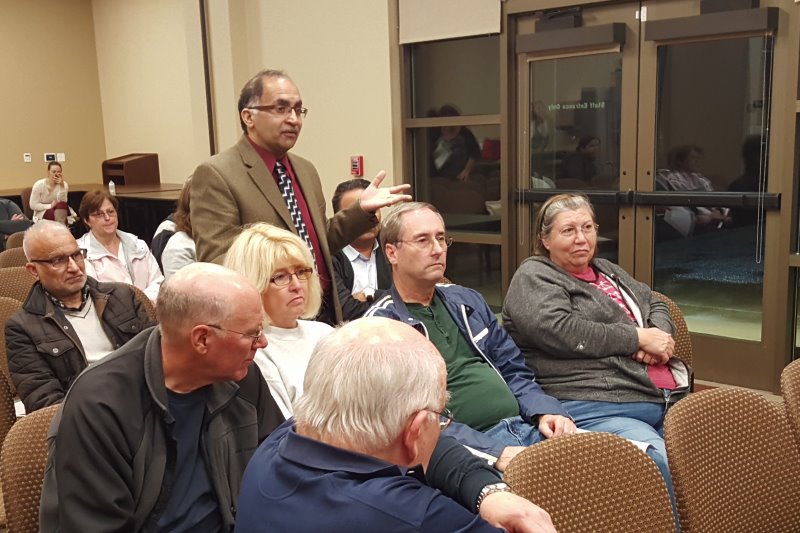
Updated 11:45 a.m., Sept. 28th–
By Mike Hazlip– Bill Van Duker has operated All Star Printing in Citrus Heights more than forty years, but his influence in the city extends far beyond the walls of the little shop at 7920 Alta Sunrise Drive.
Van Duker has been called the “godfather” of Citrus Heights for his instrumental role in the effort to make Citrus Heights a city. Following the success of that effort in 1996, he later served eight years on the city’s Planning Commission, and one of his sons now serves as a commissioner today.
Van Duker first started in the printing business when he found himself without a job in his early forties. He decided to change careers and tap into the expanding field of fast turn-around printing shops.
“At that time, small format printing was exploding,” he told The Sentinel in an interview last week. “So I bought a franchise for one of the quick printing companies and we started our business here in Citrus Heights.”
That was toward the end of 1977, and he decided to run the business independently after only a few years with the franchise company. Van Duker has been rolling pages off a press with his wife and two sons ever since at All Star Printing shop.
When he started the business, printing was still a labor intensive skill, and Van Duker said his wife would help typeset the jobs in the early days of the company. That soon gave way to new technology that made the process more efficient, he said.
The printing industry has changed dramatically over the years. Van Duker remembers printing equipment that cost tens of thousands of dollars to purchase new eventually selling for only hundreds as the technology changed the industry in the 1990s.
“A lot of capabilities that offices didn’t use to have are now present,” he said. “Everybody has a little color printer.”
Although All Star Printing now has digital equipment, Van Duker is one of the hold-outs who still operates an off-set press. He said many of the business owners he knows have already phased out the old technology, and he plans to do the same.
Van Duker says maintaining good relationships with customers and other business owners has kept All Star Printing going through difficult times. During the pandemic shutdown when many businesses were struggling, Van Duker was busy printing banners and other signage.
Much of his business comes from churches and medical professionals such as dentists, and Van Duker tries to deliver more than the printed project –emphasizing relationships with customers and also treating employees well.
“My employee costs in terms of percentage of sales has always been higher than the average, but I don’t regret that at all,” he said. “If I have somebody really good, I want to make them happy and productive.”
That approach paid off when he was diagnosed with cancer in 2000. He said his manager at the time had already been with the company for 15 years and was planning to move on to another job. Instead, the manager chose to stay until Van Duker recovered from surgery.
“He stayed with me until I got back in the saddle, then he left,” Van Duker said. “I’ve never forgotten that kind of loyalty. That was 20 years ago; I try to reciprocate that.”
Aside from providing print services for many local businesses and community groups, Van Duker’s local involvement includes serving as chairman of the Citrus Heights Incorporation Project (CHIP) for six of the 12 years it took to become a city.
Although looked upon now widely as a successful example of cityhood, the fight to break off from county governance and incorporate as a city was a decade-long battle that culminated with a “Measure R” vote for cityhood in 1996. While ending up with 62 percent approval by voters, those involved in the effort weren’t so sure it would pass.
“When we were watching the election results… we didn’t know whether we were going to win or lose,” Van Duker said during the city’s 20th anniversary celebration in 2017. He described the Citrus Heights cityhood effort as a small, dedicated group that dwindled at times to just a half-dozen people serving with CHIP during prolonged court battles in the 80’s and 90’s, which went all the way up to the supreme court.
Reflecting on that effort, Van Duker said cityhood “far, far exceeded my expectations.”
“Can you imagine us being unincorporated right now? All the development and street improvements have been an absolute benefit for the people of the community,” he said. “The county wouldn’t be dealing with the Sunrise Mall problem the way we are if we were unincorporated. Law enforcement alone was sufficient reason to incorporate.”
Commenting on his future plans and retirement, Van Duker replied, “When am I going to retire? One of these days, maybe.”
*Correction: An initial version of this story incorrectly listed the address for All Star Printing as being on Sunrise Vista Drive instead of Alta Sunrise Drive. The correct address is: 7920 Alta Sunrise Drive.







